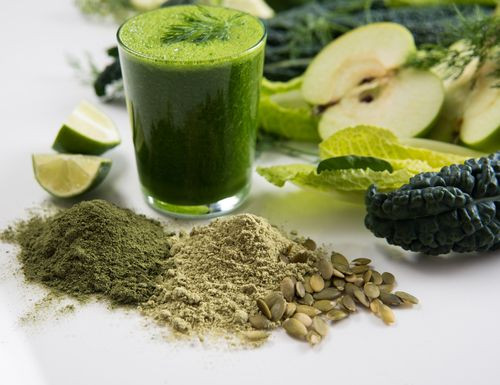Benefits Of Spirulina: What It Is And Why You Should Incorporate It Into Your Diet

Spirulina: It’s categorized as a “superfood” because of its immense health qualities. It is a blue-green algae that is rich in protein, vitamins, minerals, and antioxidants and is said to help protect against cell damage. While much of the evidence supporting these claims are anecdotal, animal and test tube studies do suggest that spirulina can increase the production of antibodies, increase immunity, help to ward off infections and possible cancer. However, none of these tests were ever conducted on human studies, and the evidence is purely subjective to many individual experiences and a long history of use.
While there is insufficient evidence to rate the effectiveness, early research by the National Institutes of Health, does show that taking 1 gram of spirulina daily by mouth for 12 months reduces precancerous mouth sores in people who chew tobacco. The type of algae that spirulina is (blue-green) contains protein, iron, and other mineral content. It is also being researched for effects on the immune system.
Nevertheless, many health experts have named spirulina as a food with the most complete source of nutrients. Due to its concentrated nutrition, it is recommended by both National Aeronautics and Space Administration (NASA) and the European Space Agency (ESA) as one of the primary foods during long-term space missions.
Mexico and many countries in Africa grow spirulina wildly, but it is also commercially cultivated in France, China, India, Thailand, and the United States. Spirulina grows in alkaline salt water, and since it absorbs nutrients so well, if the water it grows in is contaminated, the spirulina will be contaminated as well.
The University of Maryland and New York University have both recognized the anecdotal evidence of the “superfood”, but being as expensive as it is, it’s important to get spirulina from a reputable store. This way, you’re sure to avoid a processed and dried substance.
How Does It Help The Body?
1. Protein Supplement: According to the University of Maryland, amino acids make up 62 percent of spirulina. Amino acids are used by the body to make proteins, helping to break down food, grow, and repair body tissue.
2. Lipid Lowering: The hypolipidemic effects were first noticed in albino rats. The study found that HDL cholesterol was increased, while high hepatic lipids caused by a high fat diet was reduced by the consumption of spirulina.
3. Immune Boost: Having such a high concentration of beta carotene, which the human body can make into vitamin A, helps kick start your immune system.
How Should You Eat It?
It’s a versatile product and can be added to various dishes. Here are a few ideas:
1. Green Smoothie: A spoonful of this powder can boost the nutrients in your daily green drink or smoothie.
2. Spirulina Pudding: Mix this into your favorite fruit pudding and enjoy.
3. Salad Dressing: Mix this into some olive oil, lemon, a little bit of pepper, and dress your salad.
As always, please be sure to check with your physician before starting any supplement like spirulina, as it may interact with certain medications.



























